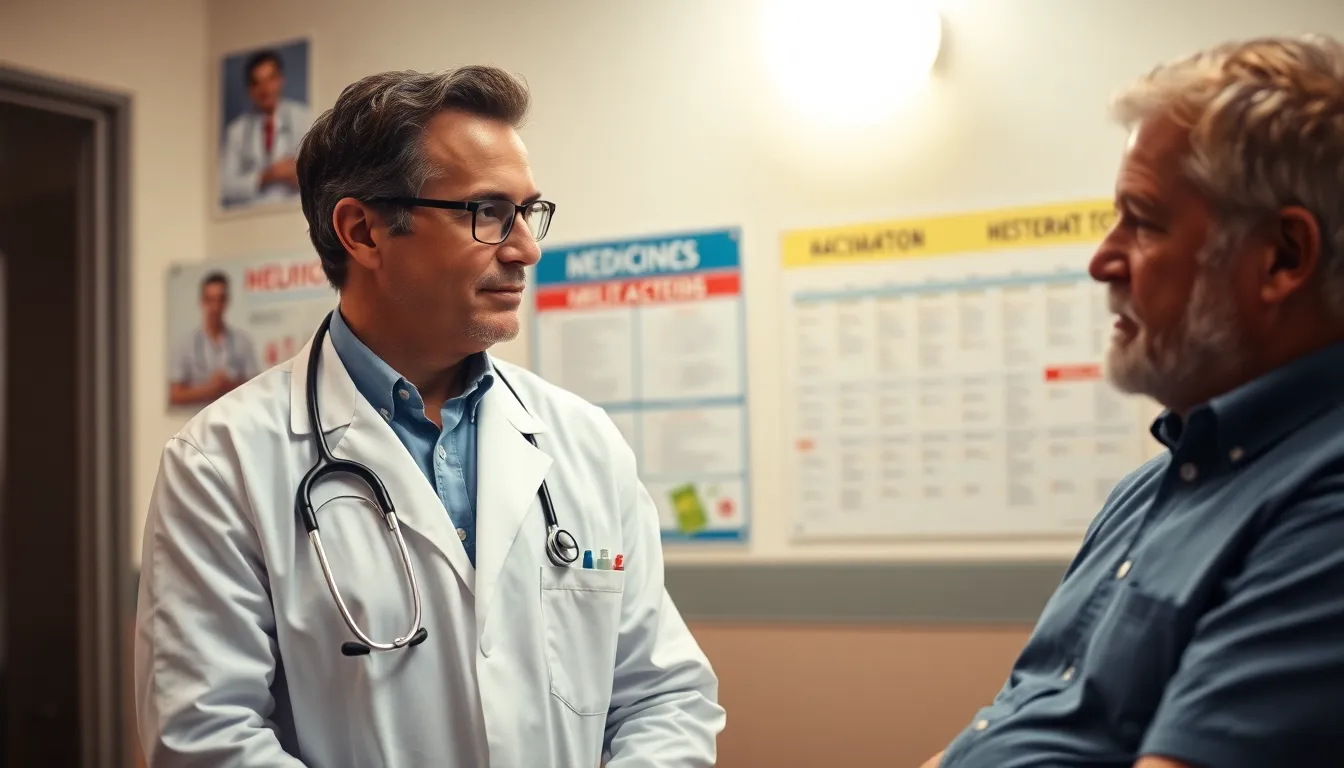Vaccinations are like the superhero capes for our immune systems, ready to fend off nasty villains like measles and whooping cough. But just like any superhero needs a sidekick, understanding vaccination safety tips can help ensure a smooth experience. With a little knowledge, anyone can navigate the world of vaccines without breaking a sweat—or a needle.
Table of Contents
ToggleUnderstanding Vaccination Safety
Vaccination safety plays a crucial role in public health by protecting individuals and communities. Knowing the basics of vaccine safety empowers individuals to make informed decisions.
Importance of Vaccination
Vaccination is vital for preventing serious diseases like measles and whooping cough. Diseases can spread quickly among unvaccinated individuals, leading to outbreaks. Vaccines not only protect personal health but also contribute to herd immunity. Herd immunity protects those who cannot be vaccinated due to medical reasons. By ensuring high vaccination rates, communities can reduce disease transmission significantly.
Common Concerns About Vaccine Safety
Many people express concerns regarding vaccine safety, particularly regarding side effects. Mild side effects, such as soreness or a low-grade fever, often occur and typically resolve quickly. Serious side effects are rare, occurring in approximately one in a million doses. Extensive research supports the safety and efficacy of vaccines. Trusted organizations like the Centers for Disease Control and Prevention (CDC) and the World Health Organization (WHO) continuously monitor vaccine safety. Open discussions with healthcare professionals can alleviate fears and increase confidence in vaccination.
Preparing for Vaccination

Preparation enhances the vaccination experience and promotes safety. Knowing what actions to take ensures individuals feel confident throughout the process.
Consult with Healthcare Professionals
Consult healthcare professionals before vaccination. They provide essential information regarding the vaccine and any relevant concerns. Asking questions about the benefits, potential side effects, and patient eligibility proves vital. Professionals can offer tailored advice based on individual health. Involving them helps clarify any doubts, enabling informed decisions. Many clinics provide resources to aid discussions, so utilizing those resources can enrich understanding.
Review Medical History
Review medical history thoroughly before vaccinating. Past allergic reactions or health conditions may impact vaccine choices. Sharing this information with healthcare providers ensures appropriate vaccines are selected. Discussing medications that might interact with the vaccine is essential as well. Patients gain clarity on which vaccines are safest based on previous health issues. Awareness of these factors can help prevent potential complications.
During the Vaccination Process
Vaccination appointments play a significant role in ensuring safety and comfort. Understanding what happens during these visits promotes preparedness.
What to Expect at the Appointment
Patients typically check in at the reception desk upon arrival. Healthcare providers review medical history and discuss any concerns regarding the vaccine. It’s common for staff to explain the procedure, including how the vaccine is administered. Observing other patients can often ease anxiety by normalizing the experience. After the vaccination, a brief observation period follows to monitor for any immediate side effects, ensuring safety and prompt assistance if needed.
Tips for Comfort During the Procedure
Maintaining comfort during vaccination helps alleviate stress. Taking deep breaths can soothe nerves before the needle is administered. Distraction techniques such as looking away or engaging with a mobile device can also ease tension. Bringing a support person to the appointment may provide emotional reassurance. After the procedure, applying a cool compress to the injection site can reduce discomfort, and remaining hydrated supports a smoother recovery.
Post-Vaccination Care
Post-vaccination care plays a crucial role in ensuring a smooth recovery process. Understanding how to monitor for side effects and when to seek medical attention enhances safety.
Monitoring for Side Effects
Observing for side effects after vaccination is essential. Common effects include mild soreness at the injection site, low-grade fever, or fatigue, occurring within a few hours or days. Monitoring these symptoms can help identify any unusual reactions. If side effects escalate or persist beyond a few days, it’s advisable to consult a healthcare provider. Keeping a record of symptoms, including their duration and intensity, aids in communication with medical professionals. Staying hydrated and resting also contributes to recovery, allowing the body to respond effectively to the vaccine.
When to Seek Medical Attention
Certain situations warrant immediate medical attention following vaccination. Severe allergic reactions, such as difficulty breathing, swelling of the face or throat, or rapid heartbeat, require urgent care. Additionally, persistent high fever over 103°F or unusual bruising or bleeding should not be ignored. Recognizing these symptoms early can prevent complications. It’s important for individuals to err on the side of caution and reach out to healthcare professionals if they sense something is wrong. Prompt action ensures safety and supports a healthy response to vaccination.
Vaccination is a critical tool in safeguarding health and preventing serious diseases. By following safety tips and preparing adequately, individuals can enhance their vaccination experience. Open communication with healthcare professionals plays a vital role in addressing concerns and ensuring informed decisions.
Post-vaccination care is equally important for a smooth recovery. Monitoring for common side effects and recognizing when to seek help can make a significant difference. Every step taken towards understanding and managing vaccinations contributes to personal health and the well-being of the community. Embracing vaccination not only protects individuals but also strengthens herd immunity, benefiting everyone.










